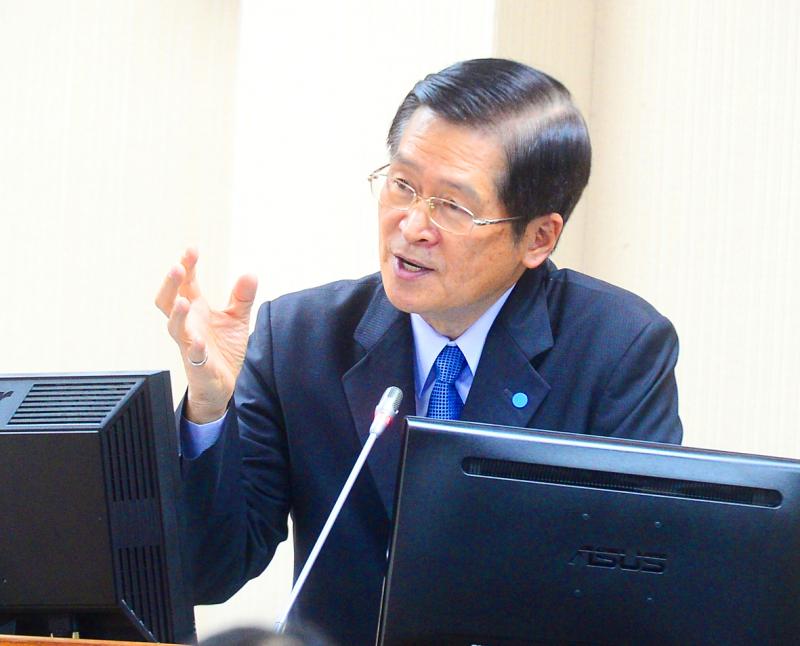- Thread Starter Thread Starter
- #41
16. EVEN if it is a clear cut invasion threat, it can take more than 2 weeks for the first shipments of American weapons to trickle-in and a further one to two months before any Japanese help can trickle-in to Taiwan. As far as American and Japanese interests are concerned, any Status of Forces Agreement (SOFA) with Taiwan, in the of tension period prior to war would seek to facilitate the following:
Knowing Taiwanese pride do you think they can accept a SOFA as envisaged? Where the SOFA would not provide similar facilities to Taiwanese personnel who could be sent to Japan for training and related purposes — their pride will be their downfall.
18. The corruption behind the "Lafayette Affair" has dragged on for two decades and has involved at least 8 bizarre deaths, multiple court cases, hundreds of millions in frozen Swiss bank accounts and high-level government probes in both Taiwan and France that have reached deep into the corridors of power. If the Taiwanese political and military leadership are really serious about defence they would not be using arms procurement as an excuse to enrich themselves.
19. I am saying the Taiwanese should do better with how they execute their arms procurement (instead of doing U-turns) or diverting money for corruption. For Taiwan’s sake, in addition to the build plan for 8 submarines, I remain hopeful for their planned local build programs for four frigates/destroyers, 10 to 15 3,000-ton catamaran frigates, and amphibious transport docks to replace 11 dock landing ships and tank landing ships.
20. The Taiwanese reserve mobilisation system does not work. It does not work because they are not seriously trying — in contrast, a significant part of the Finnish total defence concept is that there's lots of peacetime know-how that is useful for the Army. Even Finnish civilian construction workers will assist in creating fortifications and other infrastructure that might prove useful in case of war, when mobilised. In Finland, all men above 18 years of age are liable to serve either 165, 255 or 347 days. Rank-and-file reservists in Finland can get trained to become NCOs and existing NCOs trained into officers.
21. Under the present circumstances, do you think the Taiwanese can last 2 weeks to 2 months fighting alone? With the F-16V upgrade, the Taiwanese have done all they can for their AN/APG-83 Scalable Agile Beam Radar equipped F-16 fleet that are Harpoon armed.
(i) Unhindered entry of American and Japanese troops during times of emergency.
(ii) Exemption of military personnel from visa or passport formalities and local laws.
(iii) Unrestricted entry of equipment and supplies, without being subject to custom formalities.
(iv) A framework for the movement of American and Japanese personnel and supplies into Taiwan for exercise.
(v) Specifies a particular legal code to be applied in case of damage inflicted to the host nation by American and Japanese military personnel during an exercise.
Knowing Taiwanese pride do you think they can accept a SOFA as envisaged? Where the SOFA would not provide similar facilities to Taiwanese personnel who could be sent to Japan for training and related purposes — their pride will be their downfall.
17. This is a false choice. Instead of spending on defence a portion Taiwanese funding has been diverted to industry to buy what I consider are the wrong products and weapons are less suitable in meeting their actual operational demands (to futher their island defence plan)— I see their failure to upgrade the M-60 tanks and lack of focus on getting 120mm mortars and 155mm wheeled artillery, being a case in point.Taiwan doesn't have the budget to build dozens of new first-class warships, unless it reverts to the old KMT dictatorship era...
18. The corruption behind the "Lafayette Affair" has dragged on for two decades and has involved at least 8 bizarre deaths, multiple court cases, hundreds of millions in frozen Swiss bank accounts and high-level government probes in both Taiwan and France that have reached deep into the corridors of power. If the Taiwanese political and military leadership are really serious about defence they would not be using arms procurement as an excuse to enrich themselves.
19. I am saying the Taiwanese should do better with how they execute their arms procurement (instead of doing U-turns) or diverting money for corruption. For Taiwan’s sake, in addition to the build plan for 8 submarines, I remain hopeful for their planned local build programs for four frigates/destroyers, 10 to 15 3,000-ton catamaran frigates, and amphibious transport docks to replace 11 dock landing ships and tank landing ships.
20. The Taiwanese reserve mobilisation system does not work. It does not work because they are not seriously trying — in contrast, a significant part of the Finnish total defence concept is that there's lots of peacetime know-how that is useful for the Army. Even Finnish civilian construction workers will assist in creating fortifications and other infrastructure that might prove useful in case of war, when mobilised. In Finland, all men above 18 years of age are liable to serve either 165, 255 or 347 days. Rank-and-file reservists in Finland can get trained to become NCOs and existing NCOs trained into officers.
21. Under the present circumstances, do you think the Taiwanese can last 2 weeks to 2 months fighting alone? With the F-16V upgrade, the Taiwanese have done all they can for their AN/APG-83 Scalable Agile Beam Radar equipped F-16 fleet that are Harpoon armed.
Last edited:





